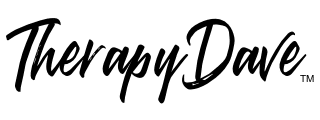Anxiety – it’s more than just a fleeting feeling of nervousness. For many, it’s a constant companion that impacts every aspect of life. Whether you’re dealing with occasional anxiety or a full-blown anxiety disorder, it’s important to understand that you don’t have to face it alone. Effective treatment is available, and the first step is understanding what you’re dealing with.
What is Anxiety?
Anxiety is a natural response to stress or perceived danger. It’s your brain’s way of keeping you safe. However, when this response becomes overactive, it can lead to anxiety disorders. These disorders cause persistent and excessive worry, even when there’s no real threat. Anxiety treatment is essential because, without it, anxiety can take over your life, making even the simplest tasks feel overwhelming.
Symptoms of Anxiety
Recognizing the symptoms of anxiety is crucial for seeking the right treatment. Common symptoms include:
- Constant worry or fear
- Restlessness or feeling on edge
- Tense muscles
- Rapid heartbeat
- Shortness of breath
- Difficulty concentrating
- Sleep disturbances
- Avoidance of situations that cause anxiety
If you experience any of these symptoms regularly, it may be time to consider professional anxiety treatment.
Types of Anxiety Disorders
Anxiety disorders come in various forms, each affecting individuals differently. Understanding the type of anxiety you are dealing with is key to finding the most effective treatment.
- Generalized Anxiety Disorder (GAD): Persistent and excessive worry about various aspects of life.
- Panic Disorder: Sudden and repeated episodes of intense fear, often accompanied by physical symptoms like chest pain or heart palpitations.
- Social Anxiety Disorder: Intense fear of social situations where one may be judged or embarrassed.
- Obsessive-Compulsive Disorder (OCD): Unwanted, repetitive thoughts (obsessions) and behaviors (compulsions).
- Post-Traumatic Stress Disorder (PTSD): Anxiety that develops after exposure to a traumatic event.
- Phobias: Intense fear of specific objects or situations.
- Separation Anxiety Disorder: Excessive fear about being away from loved ones.
Each of these disorders has its own set of challenges, but the good news is that all are treatable with the right approach.
Diagnosis of Anxiety Disorders
Getting an accurate diagnosis is the first step toward effective anxiety treatment. A mental health professional can evaluate your symptoms through psychological assessments, interviews, and sometimes even physical exams to rule out other causes. This thorough process ensures that you receive a tailored treatment plan that addresses your specific needs.
Effective Anxiety Treatment with Cognitive-Behavioral Therapy (CBT)
One of the most effective treatments for anxiety is Cognitive-Behavioral Therapy (CBT). CBT works by addressing the thought patterns and behaviors that contribute to anxiety. It’s a structured, goal-oriented therapy that teaches you how to manage your anxiety by changing how you think and react to stressors.
CBT targets four key areas:
- Intolerance of Uncertainty: Many people with anxiety struggle with uncertainty. They want to know exactly what’s going to happen and feel anxious when they can’t predict the future. CBT helps you learn to tolerate uncertainty without feeling overwhelmed.
- Beliefs About Worry: Some people believe that worrying is helpful because it prepares them for the worst, while others see it as uncontrollable and dangerous. CBT helps you develop a balanced perspective, reducing the power that worry has over your life.
- “Poor Problem Orientation”: If you see problems as threats, it’s easy to feel defeated before you even start solving them. CBT teaches you effective problem-solving skills and boosts your confidence in handling challenges.
- Cognitive and Emotional Avoidance: Worrying can be a way to avoid confronting real fears and emotions. CBT encourages you to face these issues head-on, in a safe and controlled environment, reducing their impact on your daily life.
Additional Anxiety Treatment Options
While CBT is a powerful tool in treating anxiety, other treatment options may also be necessary depending on the severity of your condition. Here’s a look at some of the most common options:
- Medication for Anxiety: In some cases, medication may be recommended to help manage anxiety symptoms. Antidepressants, anti-anxiety medications, and sedatives can be effective but should be taken under the guidance of a healthcare provider.
- Natural Remedies: For those who prefer a more holistic approach, natural remedies such as herbal supplements, mindfulness practices, and a healthy diet can be beneficial. Always consult with a healthcare provider before starting any natural remedy, especially if you are on other medications.
- Self-Care Practices: Daily self-care routines can significantly reduce anxiety symptoms. Regular exercise, adequate sleep, mindfulness meditation, and maintaining a balanced diet are all crucial components of managing anxiety.
Taking the First Step Toward Anxiety Treatment
Anxiety doesn’t have to control your life. With the right treatment, you can regain control and start living the life you deserve. As a licensed mental health practitioner, I offer personalized anxiety treatment plans that are tailored to your unique needs. Whether you’re interested in CBT, medication, or exploring natural remedies, I’m here to support you every step of the way.
Don’t wait for anxiety to take over. Reach out today to schedule an appointment and begin your journey toward recovery. Together, we can find the best approach to help you manage your anxiety and improve your quality of life.

